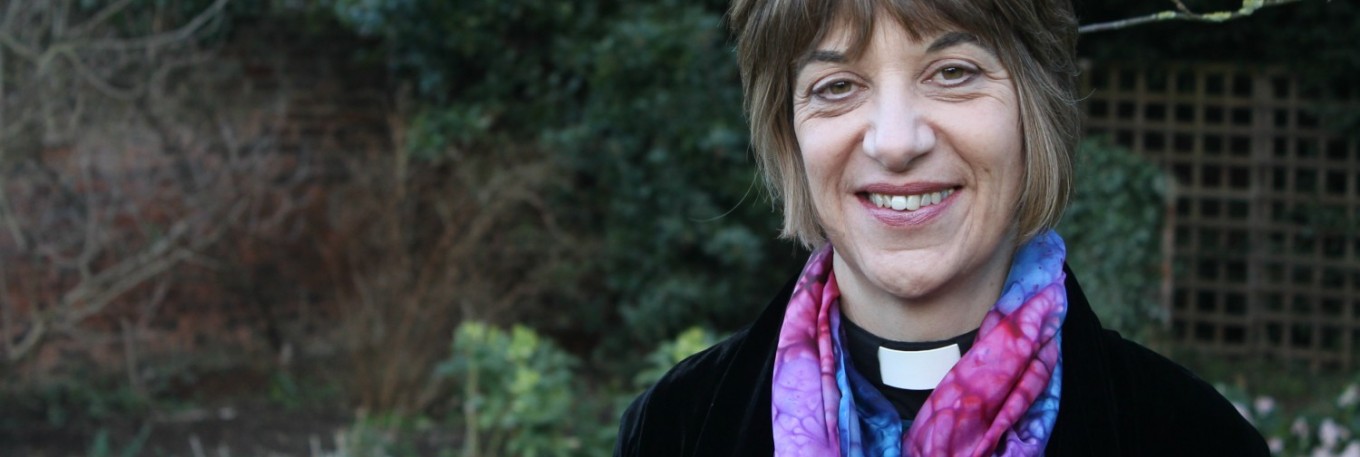You are here

Moving on up
As she begins her new role as Bishop of Gloucester, Rachel Treweek talks about careers, feminism and what still needs to change
Growing up, did you ever think you’d end up being the highest ranking woman in the Church of England?
Not at all! I never ever imagined myself even being ordained. All I ever wanted was to be a speech and language therapist, which is what I did for seven years. Then I had a very strong sense of calling, even though at that time women couldn’t be priests. It was while I was at theological college that things changed. I have always been quite outspoken about my views that men and women should be able to be what God has called them to be, but that’s not so much what I was saying I wanted for myself. Little did I think, last July at the General Synod, waiting to hear if women would be allowed to be Bishops, that I would be here now!
How do you feel about starting your new role?
A real mixture. I do feel very excited, but it’s also rather daunting. And of course there are all the feelings of moving somewhere new. But beneath all the excitement and the trepidation is a really strong sense that this is what I’m being called to, and amid all the turbulence is a genuine sense of inner peace. Although it’s taking time to get used to people calling me ‘Bishop’!
We seem to be going through a bit of a feminist revival - what are your thoughts?
Through all the discussion about women in episcopacy, which was all over the media a while ago, there was a lot of talk about equality. I’ve never banged the drum of secular equality, not because I don’t think it’s important but because for me it’s always been about equality that is God-given. I’ve not started from a political platform but the sense that we’re all equal, even though we’re all different. God created males and females in his image. It’s not about me wanting to be a man, it’s about wanting every single one of us, from the youngest to the oldest, to be seen as equal. I look back now at the women through history who have gone out into the mission field and I think, that must have been so hard for them. Many of them would have gone abroad to live out their calling because they weren’t able to live it out here. For so many women, there must have been a sense of not being able to be the person they were created to be.
Do you call yourself a feminist?
When people ask me if I’m a feminist I always say that it depends how you qualify that word. If you mean do I believe men and women are equal, then yes. If you mean are they the same, then no. In the Church, it’s about wanting men and women to work alongside each other. I wouldn’t want to walk into a church where everything being done up front was being done by women. People say, ‘But it used to be that it was always done by men’, but that’s missing the point.
What other changes do you want to see in the future?
Throughout our churches and throughout the many projects that churches are involved in, I want to be sure that we are living out the idea that people are individual and equal. I think it’s often quite a subtle thing - we can fall into a hierarchical model without realising it. The other thing is that I want to see more black, Asian and other minority groups leading in the church. I get really cross if I go to services or events where everyone up front is white. It doesn’t always happen, but it happens too much. I think that’s unacceptable and it worries me that people don’t see it. I fully appreciate that we can’t just click our fingers and magically change things - we need to be starting earlier, with our schools. We need to look at what we are doing as a Church. Are we encouraging children of both genders and all races and nationalities and background, are we training them to develop them as leaders? Also, we talk about vocations in the church and how to encourage young people to train for ordination, but I think we also need to be encouraging Christians to be teachers. If our school had lots of strong Christian teachers, that would make such a difference.
Who encourages you in your work?
My husband is absolutely amazing. He is so supportive and we both have the understanding that we are equal but different. I love that he knows me, knows all my faults, and still loves me - that’s really special to me. Alongside that is my really strong sense of my identity in Jesus Christ. Making time to pray, to reflect, to read the scriptures - I find that if I let that slide, which is a real temptation when you’re busy, I know I’m on a slippery slope. I’m also encouraged by the people I meet every day. For me, it’s really important that the Church isn’t just about the worshipping community but the wider community. When I’m chatting to people and I get the opportunity to talk about why I’m wearing a dog collar, that encourages me. It’s easy to get caught up in the structure of the job, but it’s when you have that little conversation with someone, you think, ‘That’s what it’s all about.’ And being able to laugh is very important! Not taking myself too seriously is a good thing, and being able to laugh with others too.
